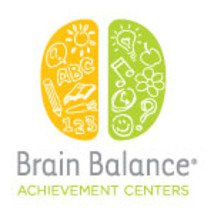Groundbreaking study proves medication is not the only option for treating ADHD.
NewbrControl Study Finds Drug-Free Program is Successful for Eliminating ADHDbrSymptoms
EightybrOne Percent of Participating Children No Longer have ADHD after Program
Sponsored by Brain Balance Achievement Center
A newbrrandomized control studyconducted by doctors in the Medical Neurology and Neuroscience field found thatbra drug-free, multi-modal program is significantly effective for eliminatingbrsymptoms associated with ADHD, as well as producing significant cognitivebrimprovement. After a 12-week intervention program, the researchers found thatbr81 percent of children who enrolled in the multi-modal program no longer fitbrthe criteria for ADHD.
Thebrindependent study, “The Integration of the Neurosciences, Child Public Health,brand Education Practice: Hemisphere Specific Remediation Strategies as abrDiscipline Partnered Rehabilitation Tool in ADHD”, was published in the peer reviewed Frontiers, In Child Health and Human Development, supported by the Frontiers Research Foundation. Frontiers is one of the largest and fastest growingbropen-access publishers in the world. It was recently endorsed by Nobel laureates and other leading scientists for its effortsbrto facilitate more transparent and democratic processes in science bybrresearchers, funders and governments. Research for the control study was conducted by Drs. GerrybrLeisman, Raed Mualem and Calixto Machado.
Thebrstudy consisted of an experimental group of 122 ADHD children, as well as abrcontrol group of ADHD children ranging in ages from 4 to 13. Each childbrdisplayed inattention, hyperactivity, impulsivity, academic under-achievement,brand/or behavior problems, and met the criteria for the Diagnostic andbrStatistical Manual of Mental Disorders, Fourth Edition, as well as demonstratedbrthe absence of coexisting conditions as evaluated by non-participating licensedbrpsychologists or psychiatrists. They also received standardized academicbrachievement tests by licensed special education specialists.
The experimentalbrgroup enrolled in a 12 week intervention program at Brain Balance Achievement Centers,brnationwide specialized achievement centers for children with behavioral andbrlearning disorders, which consisted of a multi-modal program of sensory motorbrexercises, cognitive exercises and nutritional guidance. The program attemptedbrto achieve physiologic balance and temporal coherence in the brain andbrhemisphere, as well as evenness of skills that would match the child’s age andbrgrade level. The children attended three times per week for one hour at a time.brAfter 36 sessions over the 12 week period, participants were re-tested and thebrprogram yielded strong results. In addition to the high percentage of childrenbrno longer fitting the criteria for ADHD, 60 percent of children achieved a twobrgrade level academic increase, and 35 percent of children experienced a fourbrgrade level academic increase in multiple subjects. On the other hand, thebrcontrol group, who did not go through the Brain Balance Program, was alsobrreassessed after 12 weeks. The data showed that these children experienced verybrlittle change academically, but behaviorally, their symptoms worsened. Thisbrseems to imply that the improvement in symptoms was accompanied by a significantbrimprovement in cognitive skills and academic achievement.
“Thebrgroundbreaking study proves that medication is not the only option to helpbreliminate the symptoms associated with ADHD and it validates what we have beenbrpracticing at Brain Balance for nearly 10 years,” said Dr. Robert Melillo,brfounder of Brain Balance Achievement Centers. “Drug-free, multi-modal programs,brlike the one offered at Brain Balance Achievement Centers, are ultimately morebreffective when it comes to achieving long-term results and eliminating symptomsbrboth academically and behaviorally. This study shows that our program actuallybraddresses the primary problem in the brain that is the root cause of ADHD andbrlearning difficulty, and that it actually improves brain function. I am notbraware of any other programs or studies that have yielded such positive results.brWe look forward to future studies that help us understand the impact of ourbrprogram on children with ADHD, as well as other learning disorders, likebrDyslexia.”
Offeringbralternative solutions to combat ADHD has become increasingly pertinent as thebrepidemic continues to rise at a rate of 15 to 20 percent each year. Recentbrstatistics from the Centers forbrDisease Control and Prevention (CDC) report that 11 percent, orbrapproximately 1 out of every 9 children in the U.S. and 1 in 5 high school boys,brare diagnosed with ADHD.
AboutbrBrain Balance Achievement Centers
Since 2006, Brain Balance Achievement Centersbrhas helped thousands of children,ages of 4 to 17, reach their, academic, social and behavioral potential throughbrits drug-free, whole-child approach. ThebrBrain Balance Program® utilizes sensorybrmotor exercises, neuro-academic work and nutritional guidance to address thebrroot cause of many learning and behavioral issues. Today, there are overbr55 Brain Balance Achievement Centers nationwide. For more information, visit Brain Balance.
